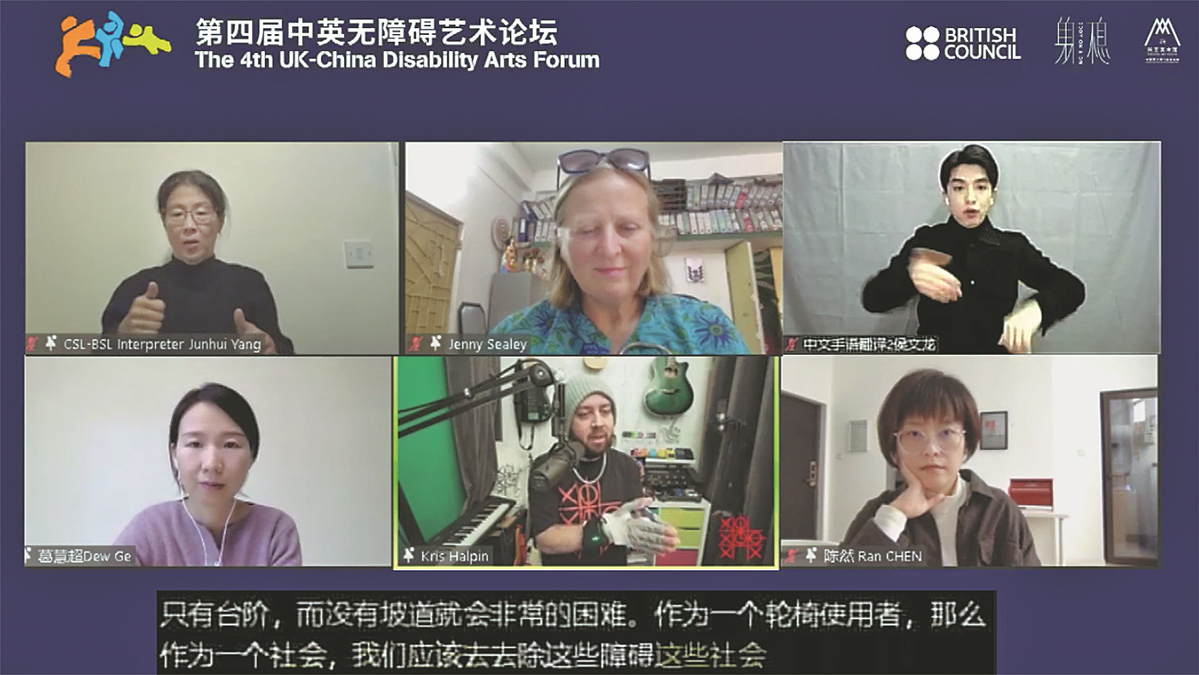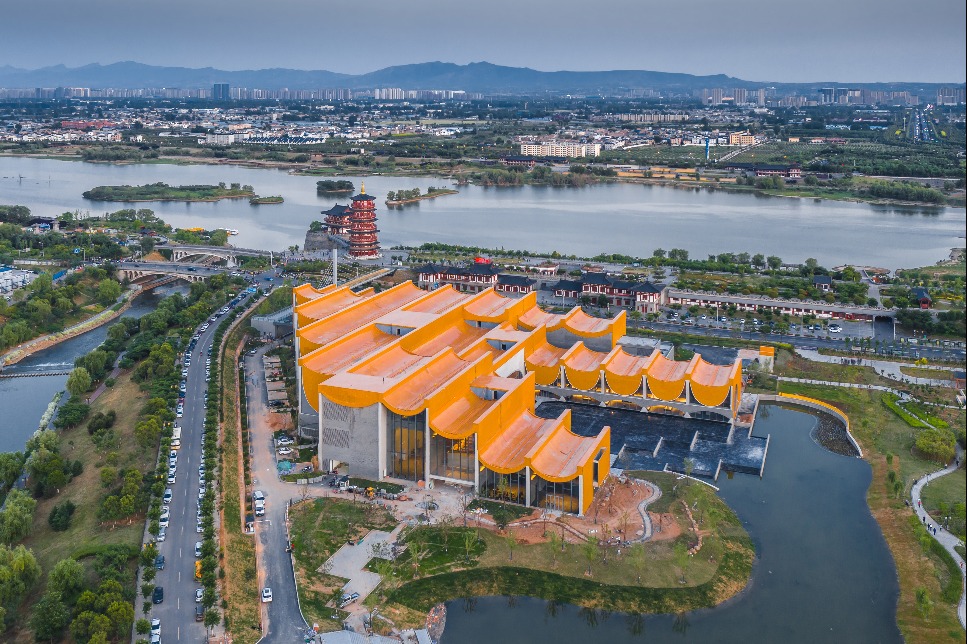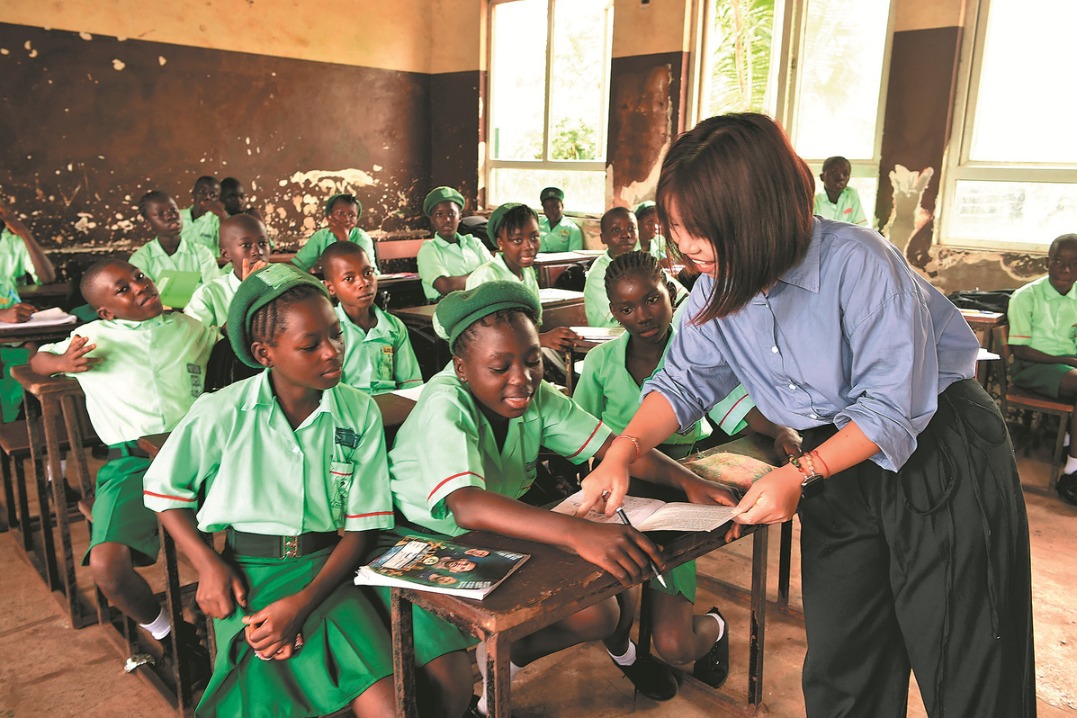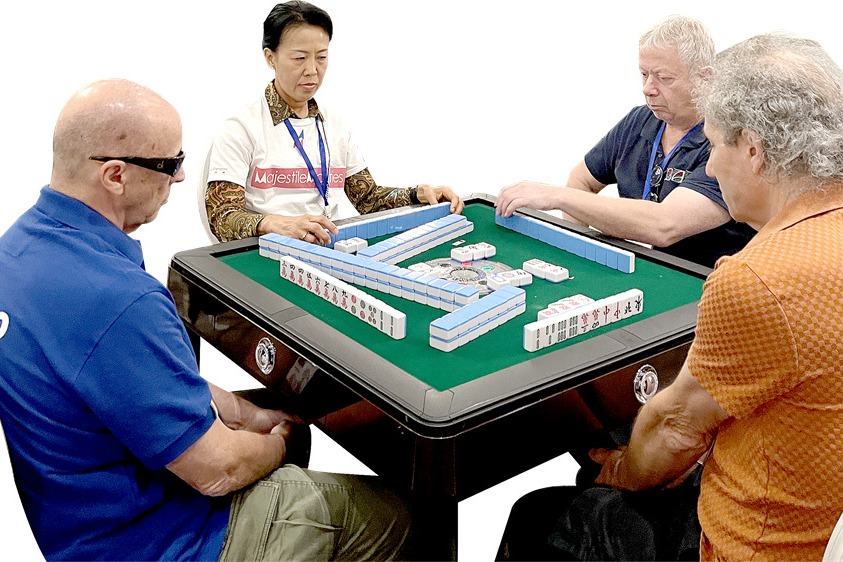The arts of inclusivity
Cultural venues across the country look to raise awareness about accessibility for, and the wider requirements of, people with disabilities, Cheng Yuezhu reports.
By Cheng Yuezhu | China Daily | Updated: 2022-12-28 07:56

The theater invited Arts Access, a platform aiming to promote accessibility among Shanghai's arts and cultural institutions, as well as a group of people with disabilities, Zhao included, to rate its facilities, and the results were up to standard. The theater is also among the first in China to welcome guide dogs into their premises.
"Theaters are public spaces and effective platforms to make voices heard, and I think we have the social responsibility to present inclusive content to the general audience," Mao says.
"What I really want to do as a theater practitioner is to present the diversified images of people with physical impairment from different cultural backgrounds, and their self-expression through different artistic means."
As she sees the technological advances that are providing more accessible facilities, she also feels more action is needed to break through psychological barriers.
"It is necessary to raise people's awareness through our constant action and communication, so as to gradually remove some of these obstacles," she adds.
The Fourth UK-China Disability Arts Forum was hosted on Dec 3, the International Day of Persons with Disabilities, to continue promoting equality, diversity and inclusion in arts and culture.
Co-hosted by the British Council, Beijing Body On&On Culture Center and Beijing Minsheng Art Museum, this year's forum invited guest speakers from China and the United Kingdom to share their experiences in disability arts under the theme of "connection and action".
The forum featured keynote speeches given by five speakers — Jenny Sealey from Graeae Theatre Company, musician and technology innovator Kris Halpin, deaf visual artist Alice Hu, independent curator and producer Lynn Fu, and theater director Chen Ran.
This year's forum was hosted via video conference and livestreamed on multiple platforms with accessible support, including sign-language interpretation, Chinese-English simultaneous interpretation, captions and video subtitles.
"Earlier this year, China drafted a law on building an accessible environment, and we are hoping to set such actions in motion," says Ge Huichao, founder of Beijing Body On&On Culture Center.
"We are still exploring ways to promote accessibility, and through this forum, we hope to introduce some of UK's experience, adapt it to China's social environment, and create dialogues and opportunities for future collaboration.
























